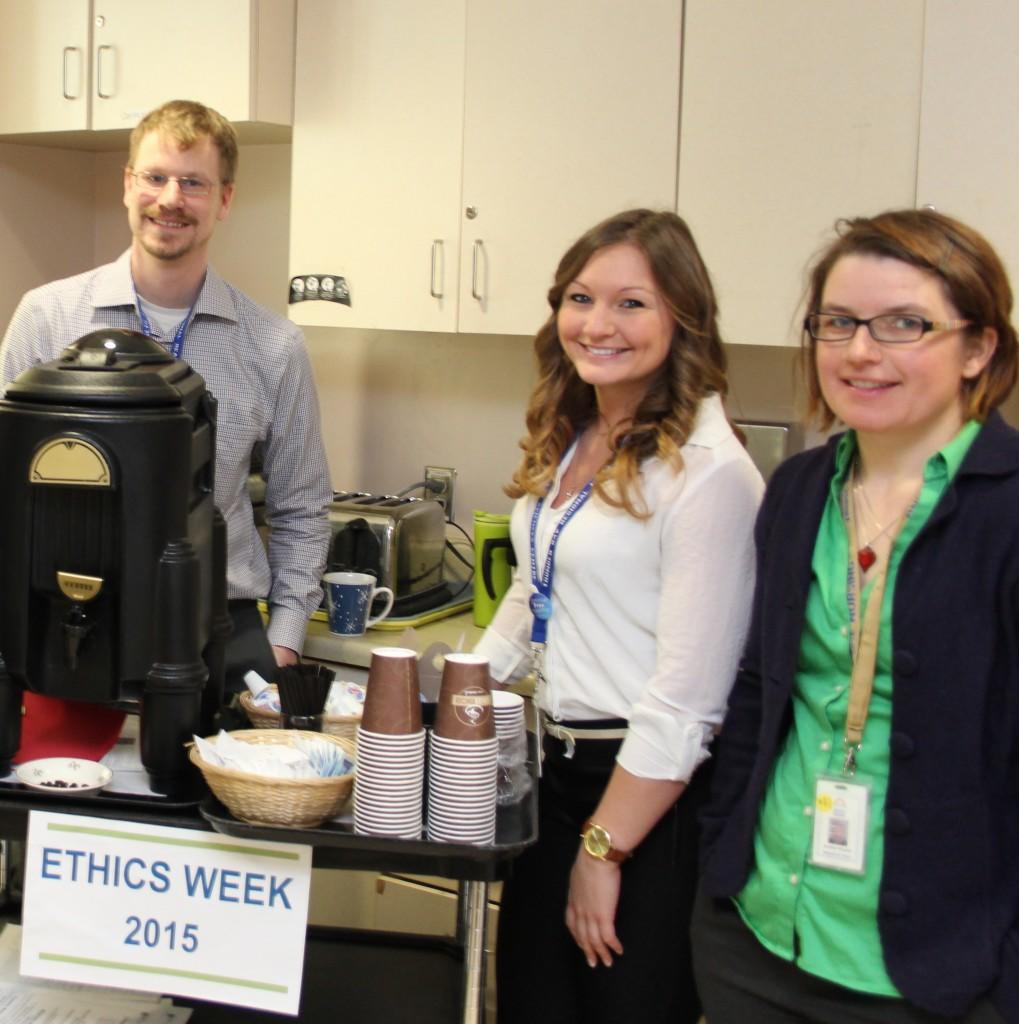National Health Ethics Week 2015
by Donna Jeanpierre

This year Thunder Bay Regional Health Sciences Centre (TBRHSC) joined St. Joseph’s Care Group, the North-West Community Care Access Centre and organizations from coast to coast in celebrating ethics. National Health Ethics Week (March 2 to 8) is a chance to learn about ethics, talk about ethical issues we face, and to raise awareness about the supports available to patients, families, staff, physicians, students, and volunteers at TBRHSC.
What do we mean by ethics?
“Ethics is the reasoned and systematic approach to deciding what we ought to do or what the right thing to do is in a given situation,” says TBRHSC Bioethicist, Michelle Allain. “Ethical questions can happen at any point along the continuum of care and in every area of the organization. They may be large, complex questions or everyday dilemmas. In fact, we make ethical decisions every day: Do you keep or hand in a missing ipod to the lost and found? Do you cut corners at work if you don’t have enough time to get everything done? Do you tell a ‘white lie’ to spare a friend’s feelings or tell the truth?”
Allain, along with the Operational Ethics Committee, supports Clinical and Organizational Ethics, by assisting patients, families, staff, physicians, students, and volunteers resolve ethical issues.
Common questions include:
- What should we do when the values and treatment goals of a patient conflict with those of their family, or TBRHSC staff?
- How and where should we spend our limited resources?
- How do I balance competing stakeholder interests when making a decision?
As a Bioethicist, Allain is trained to identify and help individuals understand ethical problems. “Bioethicists are a great resource for anyone with an ethics question or struggling with a complex decision,” says Allain. “The service is available to all patients, families, staff, physicians, students, and volunteers.” While open discussion among all those involved is encouraged, confidential consultations are also available.
In addition to clinical and organizational ethics supports, TBRHSC also highlighted Research ethics. Research ethics is the systematic evaluation of the design, conduct, and process of research involving humans, their information, and biological materials. TBRHSC’s Research Ethics Board (REB) upholds the core principles of Respect for Persons, Concern for Welfare, and Justice in their oversight of research activities within the organization. The research ethics office helps support the REB and is a liaison between researchers and the REB.
Some of the main functions of the REB include:
- Approving, rejecting, proposing modifications, or terminating any proposed or ongoing research involving TBRHSC patients, staff, physicians, students, residents, and hospital information.
- Safeguarding the rights, safety, and well-being of participants in clinical research
- Educating, supporting, and mentoring researchers regarding the process of ethical review.